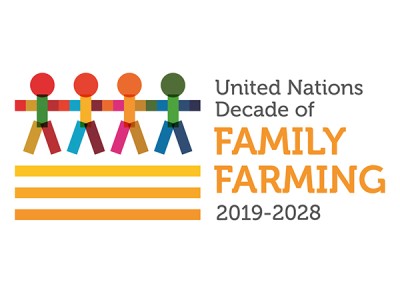Background
This collaboration was a continuation of the work carried out in 2020-2021 on documenting case studies of public policies supporting family farming. The anticipated activities take place in the framework of the United Nations Decade of Family Farming, the Scaling Up Agroecology Initiative, and the Food and Agriculture Organization of the United Nations (FAO) Regional Initiative on Zero Hunger through the promotion of sustainable transformation of food and agriculture systems to end poverty and malnutrition.
This activity is under the framework of the Regional Technical Platform on Family Farming, which has been launched to promote the exchange of innovative experiences to feed into the development of practical tools and instruments for the use of governments and countries.
The platform aims to explore various innovative experiences from a wide range of geographic, thematic and policy areas, such as digitalization, access, and use of technologies, etc., that can facilitate the development of practical tools and instruments to be applied by governments and countries for well-targeted interventions for the support of family farming. The Platform aims to directly serve and support the implementation of the UN Decade of Family Farming ("UNDFF") 2019-2028.
The UNDFF serves as a framework for countries to develop public policies and investments to support family farming from a holistic perspective, thus contributing to achieving the Sustainable Development Goals (SDGs) by unleashing their transformative potential. As promoted by the UNDFF, there is an urgent need to innovate, formulate and reform policy and legal frameworks and to develop well-targeted interventions to support the multi-dimensionality of family farming, including a wide range of issues such as gender, youth, climate change, resilience, digitalization, nutrition, agroecology, and territorial development, to name just a few. Therefore, the Global Action Plan (GAP) for the UNDFF clearly states that governments need to develop and improve context-specific legal and institutional frameworks to better tailor, prioritize and target interventions and investments for the support of family farming (FAO and IFAD, 2019).
With the guidance and technical support of FAO, SEARCA, in partnership with Asian Partnership for the Development of Human Resources in Rural Asia (AsiaDHRRA), implemented the project from November 2021 to December 2022. FAO, as the donor agency, not only provided funding but also supported the development of the project's research methodology as well as the technical review of the different case studies conducted. This activity was a follow-up of the initial case studies carried out in 2020-21 focusing on Public Policies in Vietnam, Indonesia, and the Philippines. This new set of case studies documented were jointly selected at the inception of the activity and did not focus only on Public Policies. Some case studies addressed the other Pillars of the United Nations Decade of Family Farming 2019-2028 - Global Action Plan (fao.org).
Objectives
To enhance the exchange of knowledge and best practices on family farming through the documentation and systematic analysis of six (6) case studies about policies, strategies, initiatives, and programs successfully supporting family farming.
Project Activities
This activity included the following aspects:
- Adaptation of research methodology proposed to the regional context
- Selection of cases, submission of summary notes and research plan
- Case study documentation
- Delivery of the first draft of the case studies for FAO review
- Delivery of final case studies
To support with the documentation of some case studies and get the viewpoint from Farmers Organizations, SEARCA will collaborate through subcontracting with the Asian Partnership for the Development of Human Resources in Rural Asia (AsiaDHRRA).
All project activities also contribute to SEARCA's paradigm shift towards accelerating transformation through agricultural innovation (ATTAIN) in its Eleventh Five Year Program (2020-2025).
Project Outputs
Under Activity 2, six case studies were conducted in five Southeast Asian countries, namely:
- Contract-Based Agriculture Production: A Case Study of Organic Rice Production in Cambodia
- Agro-Tourism Development in Indonesia: The Case of Yogyakarta and Bali
- The Role of Law No. 6 of 2014 Concerning Villages in Strengthening Family Farming in Indonesia
- Documentation and Systematic Analysis of Nutrition Strategies and Programs Supporting Family Farming in Lao PDR
- Partnership Against Hunger and Poverty (PAHP) and the Expanded Partnership Against Hunger and Poverty (EPAHP) Program
- Thailand's Young Smart Farmer (YSF) Program
